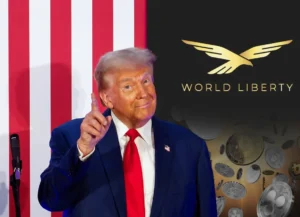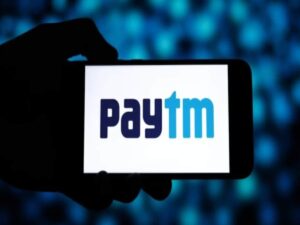Experts Warn: Covid-19 Pandemic Fueled Vaccine Misinformation That Still Persists
 The Covid-19 pandemic provided a significant boost to the anti-vaccine movement, allowing conspiracy theories to reach a much wider audience and spreading dangerous misinformation about life-saving vaccines—misinformation that continues to persist even five years later, experts caution.
The Covid-19 pandemic provided a significant boost to the anti-vaccine movement, allowing conspiracy theories to reach a much wider audience and spreading dangerous misinformation about life-saving vaccines—misinformation that continues to persist even five years later, experts caution.
Vaccine skepticism existed long before Covid-19, but the pandemic “acted as an accelerant, transforming a niche movement into a more powerful force,” according to a 2023 study published in The Lancet.
A Shift in Strategy by Anti-Vaxxers
Prior to the pandemic, anti-vaccine efforts largely targeted parents, as children received most routine immunizations. However, with the rapid development of next-generation Covid-19 vaccines and the introduction of mandatory vaccination policies for adults in many countries, the movement found a significantly larger audience spanning across political lines.
“This period saw several distinct ideological groups—many of which normally had well-defined boundaries—converging around anti-vaccine beliefs,” said Romy Sauvayre, a French sociologist specializing in vaccine hesitancy.
The pandemic also saw an increase in misinformation, as conspiracy theorists, alternative medicine advocates, politicians, and even some medical professionals promoted or amplified false claims about Covid-19 and vaccines. One widely circulated false claim involved hydroxychloroquine, which controversial French researcher Didier Raoult initially touted as a Covid cure in a study that was later retracted. Former U.S. President Donald Trump, who will be inaugurated again on Monday, was among those who promoted the drug.
“Behind these sometimes radical media doctors lies a deeper issue of trust in health authorities,” noted sociologist Jeremy Ward, who has studied vaccination trends in France since 2020.
Misinformation Rooted in ‘Individual Freedom’ Narratives
Beyond health concerns, experts suggest that the anti-vaccine movement has largely structured itself around the defense of individual freedoms. This sentiment was particularly evident during the pandemic, with widespread protests against mandatory vaccination and lockdowns.
The movement found strong support within far-right circles, with some of its advocates rising to influential positions. Trump’s nominee for health secretary, Robert F. Kennedy Jr., has repeatedly promoted anti-vaccine conspiracy theories, including the baseless claim that Covid-19 is an “ethnically targeted” virus.
The Center for Countering Digital Hate identified Kennedy and his organization, Children’s Health Defense, as part of the “disinformation dozen”—a group responsible for spreading a significant portion of online anti-vaccine misinformation.
“Kennedy’s social media accounts were among the fastest-growing anti-vaccine platforms during the pandemic, reaching millions of users,” said Callum Hood, the center’s head of research. “That kind of reach puts him in a strong position to build political support.”
Noel Brewer, a public health professor at the University of North Carolina and co-author of The Lancet study, described social media as “the backbone of vaccine misinformation efforts.”
Consequences: Resurgence of Measles and Future Pandemic Risks
The impact of widespread vaccine misinformation is difficult to measure precisely, but experts point to worrying trends.
“Some researchers believe repeated exposure to false information leads people to avoid vaccination, while others argue its impact is weaker, merely reinforcing existing hesitancy,” explained researcher Jocelyn Raude.
However, epidemiologist Meg Schaeffer from the SAS Institute told AFP that vaccine misinformation linked to Covid-19 is driving a decline in overall vaccination rates in the United States.
“The result is hundreds of measles cases among children, with half requiring hospitalization—something we hadn’t seen in the U.S. for years,” she warned.
Meanwhile, concerns are mounting over the potential threat of bird flu sparking a global outbreak in humans. Experts fear that vaccine hesitancy could undermine efforts to control future pandemics.
“If we were to face another pandemic in the near future, vaccine acceptance would be a major challenge,” said Dutch virologist Marion Koopmans.
Anti-Vaccine Accounts Now Fueling Other Conspiracies
As global attention shifts away from Covid-19, many prominent anti-vaccine influencers have begun promoting other conspiracy theories.
“These same accounts now share content that is pro-Russian or skeptical of climate change,” observed Laurent Cordonier, a sociologist at the Descartes Foundation.
While these topics may seem unrelated, he added, “the common thread is anti-establishment sentiment.”








